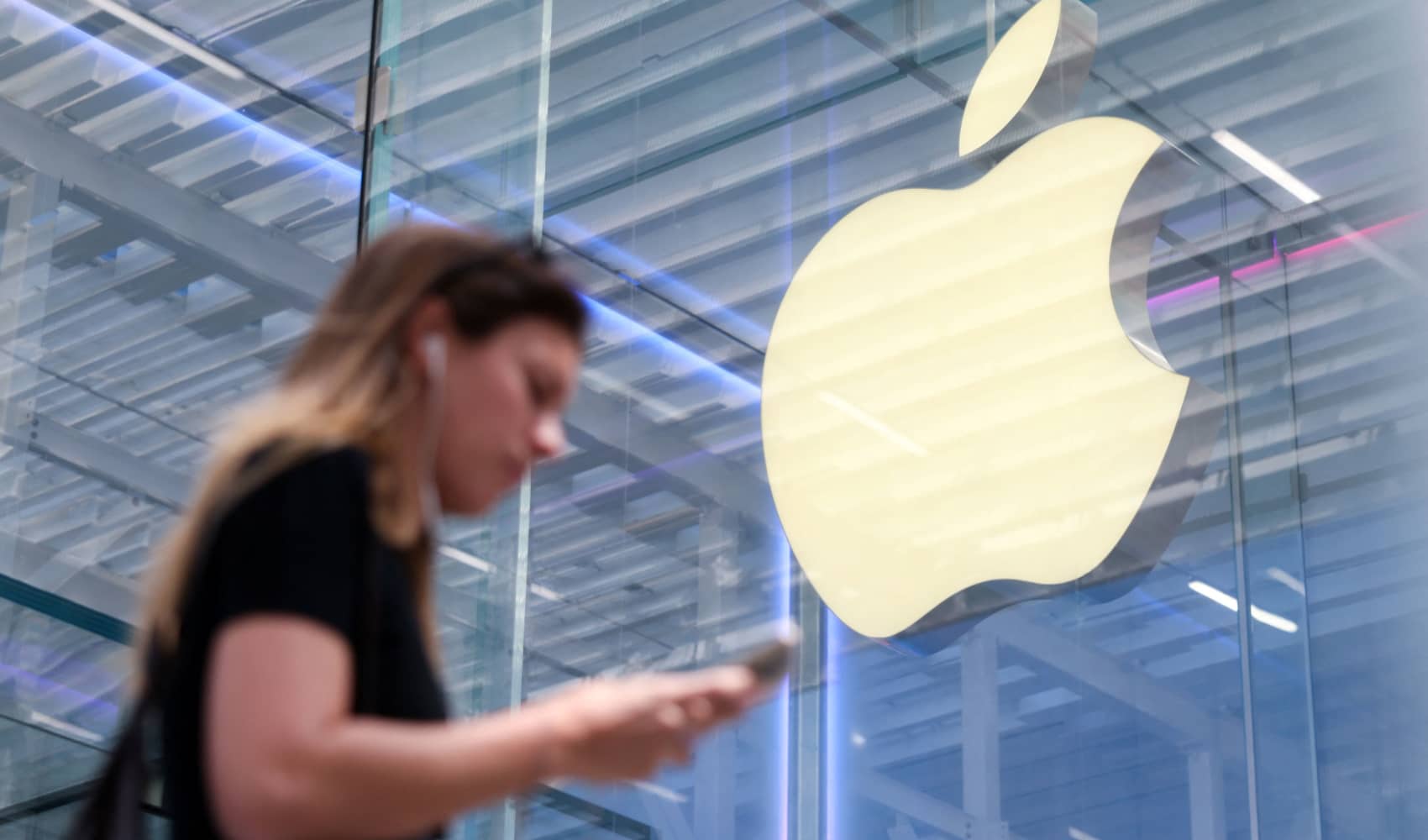Apple & Amazon Beat: Is This Tech Rally Sustainable?
CNBC Daily Open: Apple & Amazon Soar, But Storm Clouds Gather?
Introduction: Two Titans Triumphant, But Is the Sky Really Clear?
Thursday brought a wave of good news, didn't it? Apple and Amazon, two of the biggest names in tech, both delivered earnings reports that blew past expectations. It's enough to make you think everything is sunshine and rainbows on Wall Street. But, as the saying goes, the devil is in the details. While these tech giants basked in the glow of positive numbers, some underlying concerns are starting to surface. Is this a sustainable rally, or are we just seeing a temporary reprieve before the next market correction? Let's dive into the CNBC Daily Open highlights and dissect what's really going on.
Magnificent Seven: Victory Lap or Last Gasp?
Apple and Amazon joined the ranks of Alphabet, Microsoft, and Meta Platforms in exceeding expectations for the recent quarter. These "Magnificent Seven" stocks are often seen as bellwethers for the entire market. But should we be popping champagne just yet? Remember Tesla? Their "full self-driving" promise is still... well, a promise. It reminds us that even the mightiest can stumble. So, let's examine what fueled this apparent victory and see if the foundation is solid.
Apple's Earnings Beat: A Deeper Dive
Apple's Q2 fiscal earnings definitely surprised analysts. But was it a genuine surge in demand, or simply masterful cost-cutting and financial engineering? We need to look at individual product lines and geographic performance to understand the full picture. Are iPhone sales still strong? Is Apple Services continuing its growth trajectory? These are crucial questions to answer.
Amazon's Q1 Triumph: Retail Revival or Cloud Contribution?
Amazon also exceeded expectations in its first quarter. The success of AWS cloud infrastructure is no secret, but how about Amazon's bread and butter: online retail? Did cost-cutting measures boost profits, or did sales genuinely pick up? Also, let's not forget Amazon's advertising revenue, a growing segment to watch.
The Broader Market Landscape: A Tech-Fueled Rally?
U.S. stocks generally advanced on Thursday, with Meta and Microsoft leading the charge. This begs the question: is this a broad-based rally, or is it primarily driven by the continued strength of the tech sector? A healthy market needs participation from various industries, not just a handful of tech giants.
AI Enthusiasm: The Fuel Behind the Fire?
Rallies in Microsoft and Meta have indeed reignited enthusiasm around artificial intelligence. AI is undoubtedly a transformative technology, but is the hype outpacing the reality? Are investors accurately assessing the potential risks and rewards of AI investments, or are they simply caught up in the excitement?
The U.S. Chamber of Commerce: A Plea for Small Businesses
The U.S. Chamber of Commerce has urged for a "tariff exclusion process" for small business importers. This is a critical issue, as tariffs can disproportionately impact smaller companies that lack the resources to absorb increased costs. Will the government heed this call and provide relief to struggling small businesses?
Nvidia vs. Anthropic: A Battle of Words in the AI Arena
Nvidia's criticism of Anthropic, accusing them of "telling tall tales," highlights the intense competition in the AI space. This is a reminder that not all claims in the AI industry are created equal. Investors need to be discerning and evaluate the underlying technology and business models carefully.
Hidden Challenges: What Lies Beneath the Surface?
Even with Apple and Amazon's positive earnings, several challenges remain. Inflation, supply chain disruptions, and geopolitical uncertainties continue to loom large. Are these companies truly resilient enough to weather these storms, or are they simply delaying the inevitable?
Inflation's Lingering Impact
While inflation has cooled down somewhat, it remains elevated compared to pre-pandemic levels. This can erode consumer spending and impact corporate profitability. How are Apple and Amazon navigating the inflationary environment, and what strategies are they employing to protect their margins?
Supply Chain Vulnerabilities
The global supply chain remains vulnerable to disruptions, whether from geopolitical events, natural disasters, or unforeseen crises. How are Apple and Amazon diversifying their supply chains to mitigate these risks?
Geopolitical Risks: A Growing Concern
Geopolitical tensions, such as the war in Ukraine and the rising tensions between the U.S. and China, pose significant risks to the global economy. How are Apple and Amazon assessing and managing these geopolitical risks?
Interest Rate Hikes: A Potential Headwind
The Federal Reserve's interest rate hikes are intended to curb inflation, but they can also slow down economic growth. How will these rate hikes impact Apple and Amazon's future performance?
Consumer Spending: A Key Indicator
Consumer spending is a crucial driver of economic growth. Will consumers continue to spend at the same rate, or will they pull back due to economic uncertainty and rising interest rates? This will heavily impact both Apple and Amazon.
The Future of the "Magnificent Seven": Can They Sustain Their Dominance?
The "Magnificent Seven" have driven much of the market's gains in recent years. But can they continue to outperform the broader market indefinitely? History suggests that nothing lasts forever. Will new players emerge to challenge their dominance, or will they simply fade into the background?
Conclusion: A Cautious Optimism
While Apple and Amazon's earnings reports are certainly encouraging, it's important to maintain a healthy dose of skepticism. Several underlying challenges remain, and the market's future trajectory is far from certain. It's crucial to look beyond the headlines and analyze the underlying fundamentals before making any investment decisions. Don't get caught up in the hype, and always remember to do your own research. This "CNBC Daily Open" highlights the importance of understanding the nuanced realities behind seemingly positive news.
Frequently Asked Questions (FAQs)
Here are some frequently asked questions related to Apple, Amazon, and the market's current state:
- Will Apple's stock continue to rise? It depends on several factors, including continued iPhone sales growth, success in new product categories, and overall market conditions. No one can predict the future with certainty, but analyzing these factors can provide valuable insights.
- Is Amazon's cloud business, AWS, still growing rapidly? While AWS is still a major growth driver for Amazon, its growth rate has slowed somewhat in recent quarters. Competition from other cloud providers, such as Microsoft Azure and Google Cloud Platform, is intensifying.
- Are tariffs really hurting small businesses? Yes, tariffs can significantly impact small businesses that rely on imported goods. They increase costs, reduce competitiveness, and can ultimately lead to job losses.
- Is AI a bubble waiting to burst? There is a risk of overvaluation in the AI space, but AI is also a genuinely transformative technology with the potential to revolutionize many industries. A balanced perspective is essential.
- What are the biggest risks facing the stock market right now? Some of the biggest risks include inflation, rising interest rates, geopolitical tensions, and a potential recession. Investors should be aware of these risks and adjust their portfolios accordingly.


